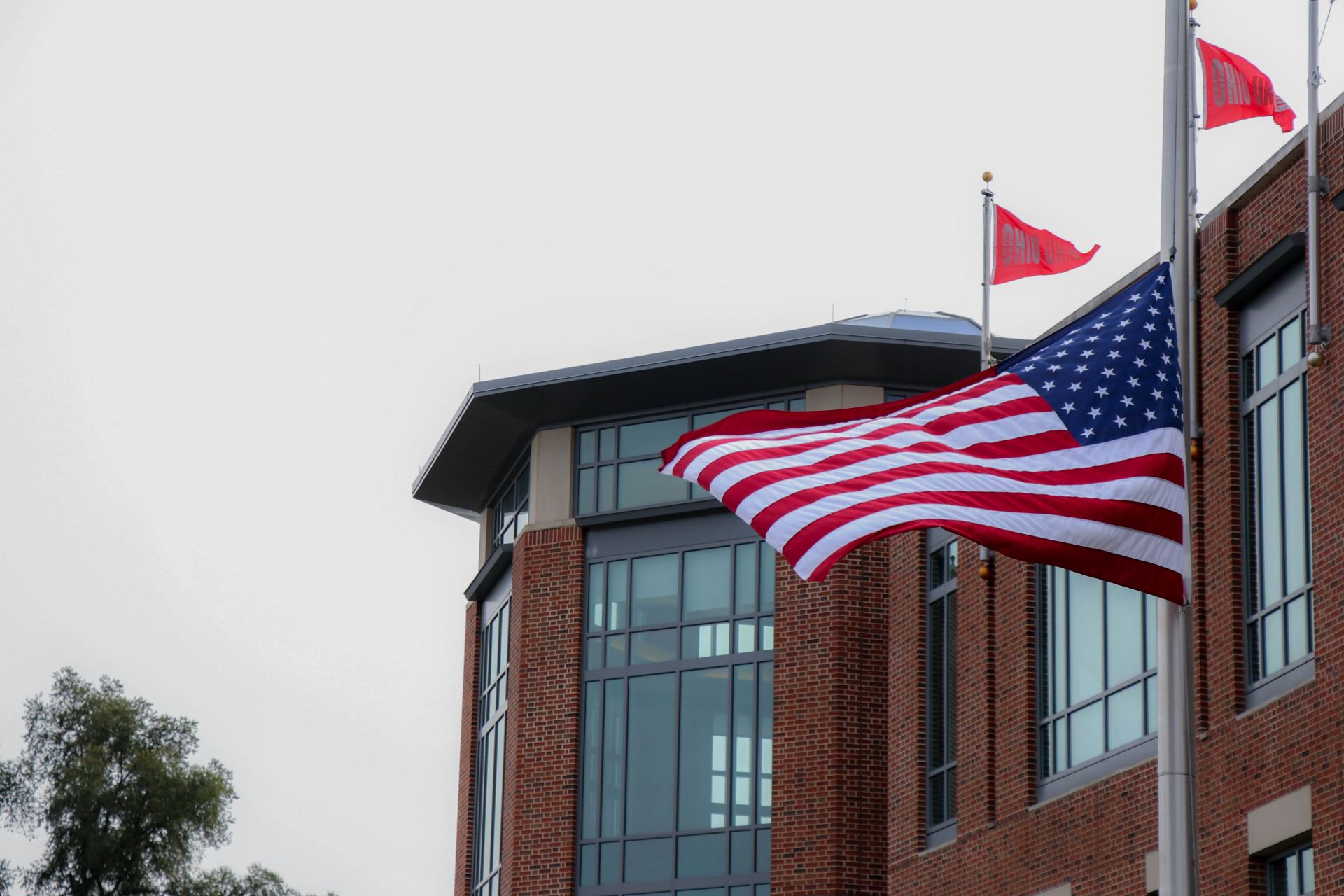
The Ohio Union flag flies at half-mast on the 16th anniversary of the Sept. 11, 2001 attacks. Credit: Jack Westerheide | Photo Editor
I imagine my memory of 9/11 is similar to many students’ my age reading: I was at home getting ready for kindergarten when I heard my mom scream. I don’t remember what she said, but I remember the panic in her voice. It was something I had never heard before and have never heard since.
My connection to the events that took place 16 years ago is not special. I know someone who knew someone who died, but I was not directly affected.
My connection is not special, but my memory is. All of ours are.
We — millennials, college students, young adults, whatever you want to call us — could be the last generation in America to have any memory of the terrorist attacks that killed nearly 3,000 people in one day. People my age specifically, around 21 years old, are potentially the last grade to remember.
Our memories of 9/11 are all different, which is why holding onto them is necessary for us all. Because although kids learning about it now read pages of text or watch hours of documentaries on Netflix, they’ll never know what it was like to witness.
The Instagram posts, the Twitter hashtags and the Facebook comments could soon outweigh the individual memory each person alive during 9/11 has. Until then, we can reflect and keep the memories alive. We can honor those who died that day and and the days after in result of the egregious attacks.
I called my mom and dad early Monday to reflect on what they remember. The emotion is still present in their voices: my dad is still angry and my mom is still heartbroken.
“We were all in shock,” my dad told me. “The U.S. getting attacked is something that never occurred to us because we have oceans between us and everyone else.”
My mom was upstairs getting ready and my dad was in the other room.
“I heard your dad screaming from the downstairs that a plane crashed into one of the towers,” she said.
What happened next I remember. They stood in front of the television and screamed and cried.
We watched as people jumped from the buildings. I remember the smoke and the falling people. My parents remember fearing the unknown. They remember not knowing whether to send me to school or not. They remember feeling that war was imminent.
“You craved information,” my dad said of how he felt watching the breaking news unfold. “All the websites had extreme slow downs. Every channel on cable was wall-to-wall 9/11. Even the movie and sports channels. They shut down.”
My mom said she went to the grocery store to stock up on anything she thought we might need.
I remember being confused as to why I wasn’t going to school. I was upset because my parents weren’t telling me everything. My older sister came home early from school and we met up with our neighbors later that night.
My neighbors talked, and I didn’t take my eyes off of the sky.
My dad remembers the channels. My mom remembers watching a vibrant city become vulnerable, populated now by the signs people carried with pictures of lost husbands, wives and family members held up by crying loved ones. I remember the falling people and the empty sky.
The sense of sadness that is brought on by those memories — by any memory — of 9/11 won’t leave, regardless of how much it’s talked about sixteen years after.
“That was my generation’s Pearl Harbor,” my dad said. “And now it’s a couple of lines in the history book.”


